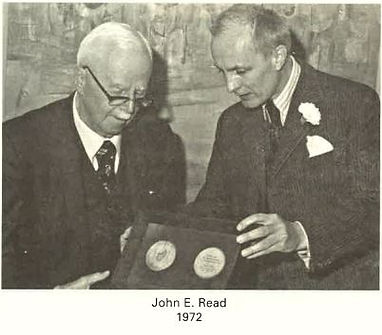John E. Read Medal
The John E. Read Medal is awarded by the CCIL to commemorate the life and work of John Erskine Read, O.C., Q.C., a distinguished Canadian lawyer and the only Canadian judge elected to the International Court of Justice.
The Read Medal is awarded to Canadians (including permanent residents of Canada), who have made a distinguished contribution in fostering the development, better understanding, or application of international law. The Read Medal is also awarded to other individuals who have made an outstanding contribution in fostering the development, better understanding, or application of international law in fields of special interest to Canada.
Call for Nominations for the 2026 Read Medal is now open.
Deadline for submissions: April 15, 2026
About John E. Read, O.C., Q.C.
John E. Read was the first recipient of the Medal awarded by the Canadian Council on International Law. He was a Rhodes Scholar and a Professor and Dean of Law at Dalhousie University in the 1920s. He served as the first Legal Advisor of the Department of External Affairs and rose to be Deputy UnderSecretary of State (1928-46). Professor Read was a major contributor to the doctrine of the divisibility of the Crown and seized on opportunities to extend Canada’s legal independence.
Professor Read was an expert in constitutional and international law and wrote “The Origins and Nature of the Law” (1955) and “The Rule of Law on the International Plane” (1961). He served as a Judge of the International Court of Justice at The Hague (1946-58). In 1967, he was made an Officer of the Order of Canada "for his services in the profession of law".

Dean Ronald St. John Macdonald (right), then President of the CCIL, presents the inaugural John E. Read Medal to John E. Read (left) on October 13, 1972 during the First Annual Conference of the CCIL in Ottawa.



